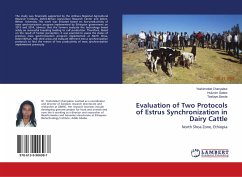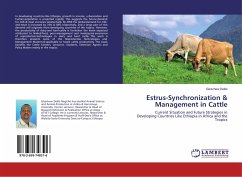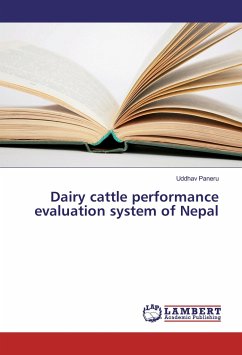
Evaluation of Two Protocols of Estrus Synchronization in Dairy Cattle
North Shoa Zone, Ethiopia
Versandkostenfrei!
Versandfertig in 6-10 Tagen
27,99 €
inkl. MwSt.

PAYBACK Punkte
14 °P sammeln!
The study was financially supported by the Amhara Regional Agricultural Research Institute, Debre-Birhan Agriculture Research Center and Debre-Birhan University. This work was initiated based on low-productivity of mass synchronization program implemented by Ethiopian government on 2013 and 2014, obvious that the farmers evaluate the technology based solely on successful breeding leading to calf production. Therefore, Based on the result of farmer perception, it was essential to assess the status of previous mass synchronization program implemented at North Shoa, Debre-Birhan, milk shed areas ...
The study was financially supported by the Amhara Regional Agricultural Research Institute, Debre-Birhan Agriculture Research Center and Debre-Birhan University. This work was initiated based on low-productivity of mass synchronization program implemented by Ethiopian government on 2013 and 2014, obvious that the farmers evaluate the technology based solely on successful breeding leading to calf production. Therefore, Based on the result of farmer perception, it was essential to assess the status of previous mass synchronization program implemented at North Shoa, Debre-Birhan, milk shed areas and evaluate different estrus synchronization protocols to find the reason of low productivity of mass synchronization implemented previously.












